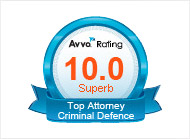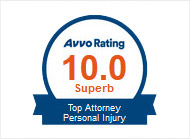A criminal record can follow you long after your case is closed. Even if you’ve paid your debt to society, your record can still affect your ability to get a job, rent an apartment, secure a loan, or continue your education. In New Jersey, the expungement process offers a legal way to remove certain criminal records from public view—giving people a chance at a clean slate and a better future.
If you’re struggling with the lingering effects of a past arrest or conviction, it’s essential to understand how expungement works in New Jersey, who qualifies, and how legal help can make the process smoother.
What Is Expungement?
Expungement is a legal process that allows a person to have their criminal records removed from public databases. Once an expungement is granted, the law treats the offense as though it never occurred for most purposes.
This means you are legally allowed to answer “no” when asked if you’ve been arrested or convicted on job applications or housing forms, with some exceptions (such as applying for a job in law enforcement or the judiciary).
Importantly, expungement does not erase the record from all databases—it is sealed from most public access, but law enforcement and certain government agencies can still access the record in limited circumstances.
Why Expungement Matters
Even a single arrest, dismissed charge, or low-level conviction can create obstacles in your personal and professional life. Many employers now conduct criminal background checks, and any blemish—no matter how old—can be grounds for rejection.
According to a 2020 report from the Brennan Center for Justice, nearly 1 in 3 Americans has some type of criminal record. Many of these individuals face barriers to employment, housing, and education despite never having committed a violent or serious crime.
In New Jersey, lawmakers have recognized this burden and have taken steps to make expungement more accessible. With recent reforms, more people now qualify for record-clearing than ever before.
Who Qualifies for Expungement in New Jersey?
Eligibility for expungement depends on the type of offense, the outcome of your case, how much time has passed, and your overall criminal history. Below are some general guidelines based on the type of record:
Arrests Not Leading to Conviction
If you were arrested but not convicted (e.g., your charges were dismissed, you were found not guilty, or you entered a diversionary program), you may be eligible for expungement right away. In most cases, there is no waiting period for these types of records.
Disorderly Persons Offenses (Misdemeanors)
If you were convicted of a disorderly persons offense (the New Jersey equivalent of a misdemeanor), you may be eligible for expungement five years after completing your sentence, including payment of all fines.
New Jersey law allows up to five disorderly persons offenses to be expunged, provided there are no indictable (felony-level) convictions on your record.
Indictable Offenses (Felonies)
For more serious offenses, the waiting period is generally five years after the completion of all sentencing terms. However, New Jersey courts have the discretion to grant expungement petitions after four years in certain cases if it’s in the public interest.
Only one indictable conviction is generally eligible for expungement, though there are exceptions depending on how the convictions are connected.
Multiple Convictions
New Jersey law now allows for the expungement of multiple convictions if they were part of a “crime spree”—meaning they were closely related in time and circumstances.
Marijuana and Cannabis Offenses
As part of New Jersey’s legalization of cannabis, the state has made it easier to expunge past marijuana-related offenses. Many simple possession charges are now automatically eligible for expungement or may already have been cleared under the 2021 Clean Slate Law.
How Long Does Expungement Take?
The expungement process can take several months, even if you’re eligible. Once a petition is filed, the court must review your case, notify multiple agencies, and schedule a hearing if necessary.
Typical timelines are:
- 3 to 6 months from the date of filing to final expungement.
- Faster processing may occur for cases that are dismissed or qualify for automatic expungement.
Being thorough and accurate in preparing the petition can speed up the process and reduce the chance of errors or rejections.
What Is the Clean Slate Law?
Passed in 2019 and enacted in 2021, New Jersey’s Clean Slate Law allows individuals with multiple convictions to apply for a full expungement of their criminal record 10 years after completing their last sentence—including probation or parole.
This law is especially helpful for individuals who have aged out of criminal behavior and want to rebuild their lives without old charges holding them back. It also applies to people with more than one felony conviction, which previously made them ineligible for relief.
Who Is Not Eligible for Expungement?
Some convictions cannot be expunged under New Jersey law. These include, but are not limited to:
- Murder
- Kidnapping
- Rape
- Perjury
- Child pornography offenses
- Aggravated sexual assault
- Crimes involving public office abuse
Additionally, if you still have pending charges, you must resolve them before applying for expungement. Courts will not grant expungement if you are under investigation or facing new charges.
Benefits of Expungement
The benefits of expungement are real and long-lasting. They include:
- Better Job Opportunities: Many employers won’t hire someone with a criminal record.
- Improved Housing Options: Landlords may deny applicants with any past convictions.
- Access to Education: Some schools and scholarship programs restrict applicants with criminal histories.
- Peace of Mind: Expungement allows individuals to move forward without constant reminders of past mistakes.
Once your record is expunged, it is as if the offense never occurred—for most purposes. You can legally state that you have not been convicted of a crime, which can open many doors.
Why Legal Help Matters
The expungement process may seem simple, but mistakes can delay or derail your petition. Many people are denied expungement because of incomplete paperwork, missed deadlines, or confusion over eligibility requirements.
Legal representation helps ensure that your petition is accurate, complete, and supported by the right documentation. An experienced attorney will also help you prepare for court hearings, if needed, and respond to any objections that arise.
If you’re not sure whether you qualify or don’t know where to start, seeking legal advice is the best first step. Your future is worth the investment.
How Gregg A. Wisotsky, Esq. Can Help
At the law office of Gregg A. Wisotsky, Esq., we believe that one mistake should not define your future. We are committed to helping individuals in New Jersey clear their records and reclaim their lives.
With decades of experience in criminal defense, we understand the expungement process inside and out. We will:
- Evaluate your eligibility.
- Gather court and sentencing records.
- File your petition with the proper court.
- Represent you in hearings.
- Follow up to ensure your record is cleared in state databases.
Our goal is to make the process as smooth and stress-free as possible. We treat every client with dignity and respect, providing honest advice and personalized attention.
We offer free phone consultations to all new clients. If you’re unsure whether you qualify or have questions about your record, we’re here to help. Call 973-898-0161 or contact us online to get started.
Take the First Step Toward a Fresh Start
Don’t let your past limit your future. Expungement offers a legal path to leave your record behind and move forward with confidence. Whether you’re applying for a job, seeking housing, or just ready to start over, clearing your criminal record is an investment in yourself.
With the right legal support, the process doesn’t have to be overwhelming. If you’re ready to explore your options, contact Gregg A. Wisotsky, Esq. today. We serve clients across New Jersey, including Morris County and beyond.












